From Zyba Hysen Hysa
Memorie.al / My study of the life and work of the journalist, Fiqiri Llagami, for a biographical book, after he had finished his studies at the “Ecole des hautes – etudes, rue de la sorbonne – paris, ecole de journalisme” in 1935 and the “Universiteti de Paris, faculte de droit, crtificat d’etudes administratives et financieres” in 1940, prompted me to write this modest article to precede this book, which is not simply a personal biography, but a scan of the historical and political conditions of the time. Fiqiri Llagami was an intellectual of European stature, who from his beginnings accompanied Professor Leon Rey to a scientific conference on “Albania” and interviewed high-ranking personalities of France at that time, such as Senator Justin Godart, which he published in the newspaper “Besa” with the title; “What Justin Godart says about Albania,” in No. 859, May 28, 1934.
With Mr. E. V. Letzgus, director of the Franco-Albanian Chamber of Commerce, with the title: “For the development of Franco-Albanian trade,” published in the newspaper “Besa,” No. 783, February 21, 1934, etc., who, after World War II, would be declared a “war criminal” by the Special Court on April 13, 1945, and sentenced to 20 years in prison!
To be followed later by the ordeal of psychological terror caused by the label “Enemy of the people,” a label that discredited you before society, before your family, before yourself, and with a second arrest in 1975 and an 8-year prison sentence, but after three years in prison, he would pass away in Hospital No. 2 in Tirana, on February 17, 1978, never knowing why he had been labeled an “Enemy of the People” and why he had to be so punished and massacred!
As often as invaders, or the governments installed by them, come, there is talk of a “new spirit,” which unfortunately has nothing new about it, except for the change of “puppets” to stammer the words of the “actors,” as required by the case; sometimes with the voice of an angel, sometimes with the voice of a devil. And it is precisely at that moment that Albanians are filled with hope, because they believe that something will change for their good. It was those times when Albanians truly went all over the world, not as economic migrants, but as students, to prepare to truly bring a new spirit to our lands.
It should be emphasized that during the time of Ahmet Zog, many Albanians went to study and there were many who were also financed by the government, but what impressed me was the law, which stated that if you failed a class, or finished your studies and did not return to the homeland, you owed the state all the money spent. But this good thing, I would say, had evil within it.
Focusing only on the fact of how Fiqiri Llagami was attempted to be used by the post-war government, without going into other details of the life and work of this intellectual, I want to mention that there were also such attempts by pre-war governments. In 1931, when Fiqiri was studying at the Tirana Gymnasium, a new organization was created, the society “Fryma e Re” (The New Spirit), which, according to Fiqiri’s depositions, he himself was chosen as its chairman. And according to his depositions, he had started writing literary articles as early as 1929, which were published in newspapers and magazines of that time such as: “Gazeta e re,” and the magazines “Vatra,” “Ora,” etc…!
In 1931, he had written an article with the pseudonym “Amikus” in the newspaper “Shqipëria e Re” of Constanța, Romania, where the Zogist regime was criticized. He was arrested by two policemen, one of whom was Besim Pazari, and after three weeks in prison, he was released… – This is said, among other things, in the report of the Ministry of Internal Affairs, 1st Branch, No. 8, on the “Materials available for Fiqiri Llagami,” Tirana, October 6, 1957.
During the period when Fiqiri Llagami was an excellent student at the Tirana gymnasium and when our country still did not have a University, of course, everyone would ask for economic assistance to be able to study abroad. Therefore, Fiqiri’s request to the Minister of Education at that time, Mirash Ivanaj, cannot be called Fiqiri being a supporter or not of King Zog, although he had publicly declared his ideas, which were condemned as; “Progressive ideas for the time.”
This right belongs to every Albanian citizen, just as we did during the communist dictatorship, regardless of whether we had or did not have communist beliefs, they gave us a scholarship or not. I think this was the reason that after he requested a scholarship, they passed him from the Ministry of Education to the Ministry of Internal Affairs to set conditions, in case he would become a collaborator of the State Security.
As it is written in the “Top Secret” report, which I mentioned a little earlier, that: “In 1933, after graduating from the gymnasium, he addressed a request to the former Minister of Education, Mirash Ivanaj, to secure a scholarship, but since the Ministry of Education “did not have funds,” he recommended him to the former Minister of Internal Affairs, Musa Juka, who called him himself in September 1933, and informed him that a half-scholarship of 120 francs per month was approved…!
Some of the tasks that Musa had assigned him were: to always speak well in the foreign environment, whenever he would find something about the fugitives of that time… to immediately inform Musa…”, but during his years of study, it is said that he reported continuously, but no document proves this, as far as spying on the fugitives is concerned, while he took an active part in the propaganda of Albania, and not only that, but he worked for the propaganda of the recognition of Albania in France, as in the Conference with Professor Rey, as the leader of archaeological research in Albania for about 10 years, which are verified by documents, but these would be done by any honest Albanian.
But the way Fiqiri is received after returning from his studies makes you think that he; “did not perform the duties” of the Minister of Internal Affairs, Musa Juka, well…! The problem of Fiqiri’s repatriation after finishing his studies at the Sorbonne in France, of course, would have to do with the people in power at the time, who promised him that they would place him in important institutions, but what was not expected happened, as soon as he landed on Italian soil, he was arrested in 1942 by the Italian carabinieri, at the time when he was returning from France to Albania, where he was kept in isolation for almost three months…”
Another fact is that after he was released and returned to Albania, they did not even appoint him as Deputy Mayor, even though that job was outside of politics. In the report dated May 11, 1961, Fiqiri declares before the investigative commission formed by: Sino Zhupa, Frederik Nosi, Delo Balili, Jahja Hatibi that:
“Until 1942, I was in Paris, where seven years earlier I had finished the Faculty of Journalism. To come to Albania, I wrote a letter to Mustafa Kruja as well as Kolë Bib Mirakaj, naturally making opportune promises. Although I was not in a good financial situation, I did not accept political offices or collaborations with the organs of the occupier, although they were requested from time to time, as I would work with property in Albania with the promise that I would have their support.
During the time that Kolë Bib Mirakaj was the Minister of Internal Affairs, I submitted my request orally to be appointed as Deputy Mayor of Tirana, because I was in a difficult economic situation and on the other hand, it was an office without political responsibility and suitable for me who was also a graduate with administrative studies. That office was definitively not given to me, because Nikolla Kotte, who was more supported, was taken in that place.
To cope with family needs, I agreed to teach the French language first and later the Albanian language and history at the Women’s Institute of Tirana, and after the closure of this Institute, I was left without a job, because I worked by the hour and was forced to give private lessons in the French language, and with the income from these lessons, I lived until the time when the Mitrovica government declared that the press was free.
I then decided to publish an opposition newspaper, of course within the limits that the situation at the time allowed, with the aim of preaching the unification of youth around the ideal of the homeland, the denigration of fratricide and all those who had been the cause of Italy’s arrival in Albania, and the unmasking of all the people who had served Fascism, such as: Mustafa Kruja, Hilmi Leka, Kolë Bibaj, Maliq Bushati, Qazim Mulleti, and others.
In issue No. 3 of this newspaper, I published an article in which I exalted the youth and showed opposition to any connection with any occupier. In consequence of this article, I was notified of the Prefect’s order to stop the continuation of the newspaper’s publication, and I was informed that imprisonment measures would be taken against me.
On this occasion, I made an opportunistic maneuver, going to Tufina to meet Abaz Kupi and to ask for his help. I took an interview from him in which he expressed his ideas regarding the Kosovo issue…! It seems that the organs of the Mitrovica Government found this interview to be not in contradiction with their interests, and with the mediation of Abaz Kupi, they allowed me to continue publishing…!”
This newspaper was in opposition to the occupier and his collaborators, so after two and a half months, the order for its closure was taken by the Prefecture during the occupation. He was accused of being a communist, and during communism, he was accused of being a traitor and a “War Criminal.” This dangerous game of the so-called Albanian politics is clear, that regardless of whether you were a legalist, Ballist, communist, or unorganized, as Fiqiri was, if you showed patriotic signs in the service of the people, the homeland, the nation, you were destined to be killed, imprisoned, interned, morally persecuted until you became an undesirable person for society, your family, and your children.
It was clear that a man like Fiqiri Llagami, the son of Myslym Llagami, who was a very capable man, a famous lawyer in Tirana at the beginning of the last century, but suffered for a single reason; he sought freedom for his nation and was imprisoned by the Turks, Serbs, and by Albanians. His wife was the daughter of the patriot Hasan Sharra, who turned his house into the headquarters of the ministries of Ismail Qemali’s government. A man who kept the map of Ethnic Albania in his house would have the fate of all Albanian patriots and intellectuals of that time, because the writings of the newspaper “Shqipnia” were not only in opposition to the government, but also to the Communist Party, which represented the next occupier; the Yugoslavs.
Therefore, in addition to the final ban on its publication, after two and a half months of patriotic activity, after the liberation and re-occupation by Slavism, they would continue to deal with its publisher, to call him a “War Criminal” and in the special court on April 13, 1945, he would be judged and sentenced to 20 years of imprisonment, confiscation of property, and deprivation of civil rights. In this infamous trial, where about 60 people were judged, some were shot, some were sentenced to 30 years in prison, some to 20 years, some to 5 years, and only 2 people came out innocent…!
The absurd accusation against him was: “He was an instrument of enemy propaganda as a propagandist and journalist,” (especially in the newspaper “Shqipnia”), an accusation which he answered before the court: “I who voluntarily stayed away from political activity since 1935 (the date of my university studies, in the field of journalism and administration) and until the short publication of ‘Shqipnia’ (March-April 1944). I, who did not publish any political newspaper for a period of 10 years, there is no doubt that I was not so stupid and ignorant that, right when the occupier and the regime were in agony, I would become their advocate! And an advocate without rewards!
I have sincerely stated the factors that determined the decision to publish in ‘Pro – Memorja’; the comrades from the mountains, even before the publication, were informed about the newspaper’s program, a program that I had given to Nexhmedin Shehu, who, of course, communicated it where it was needed. ‘Shqipnia’ was received with enthusiasm as soon as it came out, and many comrades in illegality collaborated on it, such as Demir Godelli, etc…
Today it is not difficult to criticize the occupier and his people. “Shqipnija” fought right at the time when they had the rifle in their hand and we only had the pen and the flame of love for the Homeland…”!
Thus, in the criminal record, in the document dated November 26, 1975, it is stated: “By decision of the special court, with No. (none) dated April 14, 1945, he was sentenced for war crimes to 20 years of imprisonment…”, but later 10 years were pardoned on the occasion of November 28, and in 1954, he was released from prison, only to later experience the most severe prison, that of psychological terror, by being sent to internment in Lushnja for one year, but he returned to Tirana after 6 years, to begin the ordeal of unemployment, extreme poverty, and persecution by the “operators” of the State Security, who appeared as friends…!
I have never held a file as voluminous as Fiqiri Llagami’s, and at the same time, a file full of: “He told me, I told him,” or “he left the house, crossed the street, met with… then left…”?! Oh great God, what has been done to Albanians just to have them under control, to enslave and massacre them to the core!
Thus, after the fairy tale – “telenovela” – was written, the arrest was made with the accusation of “Enemy of the people” and in 1975, he was arrested and on November 30, 1975, he was sentenced to 8 years in prison, “For agitation and propaganda,” an accusation that Fiqiri Llagami strongly opposed and did not accept, but as I said at the beginning, his untimely death came to his “aid,” to save him from the communist hell, because on February 17, 1978, he passed away in Hospital No. 2, in Tirana.
Fiqiri Llagami’s life journey is like that of many Albanian intellectuals of that time, but unfortunately, also of this time without a good time for Albanians. But to write about their life and work is the duty of every intellectual, writer, and scholar, to understand where we were, where we are, and where we must go!
I have not said it often and I repeat it to the point of monotony, that the stratum of intellectuals of the 1940s has never existed, nor will it ever come again for Albania and our nation. The killing, imprisonment, internment, and discrimination of them by the communist system have been the greatest misfortune of all time. The untimely loss of these intellectuals was felt not only by Albania at the time, the Albania of the communist dictatorship, today’s Albania, but will also be felt by the Albania of tomorrow…! / Memorie.al





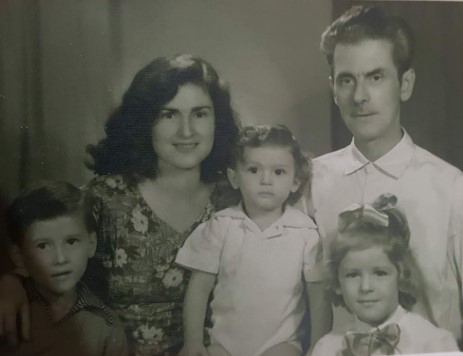
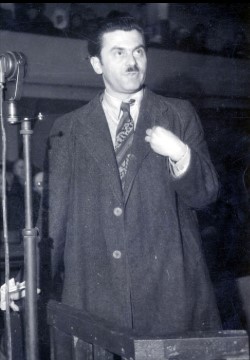
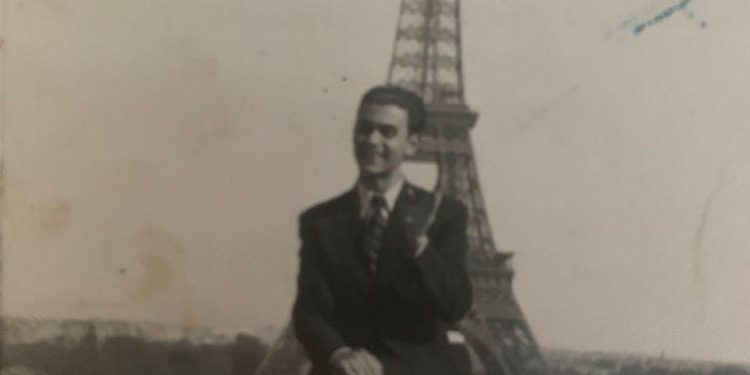
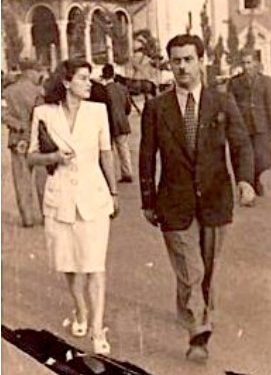
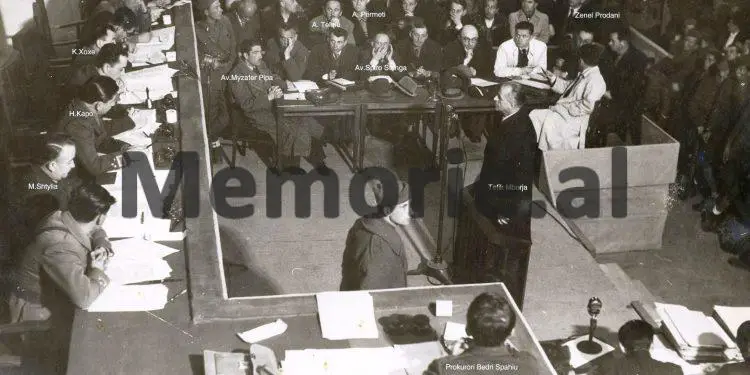
![“When the party secretary told me: ‘Why are you going to the city? Your comrades are harvesting wheat in the [voluntary] action, where the Party and Comrade Enver call them, while you wander about; they are fighting in Vietnam,’ I…”/ Reflections of the writer from Vlora.](https://memorie.al/wp-content/uploads/2025/06/admin-ajax-4-350x250.jpg)


![“The ensemble, led by saxophonist M. Murthi, violinist M. Tare, [with] S. Reka on accordion and piano, [and] saxophonist S. Selmani, were…”/ The unknown history of the “Dajti” orchestra during the communist regime.](https://memorie.al/wp-content/uploads/2026/02/admin-ajax-3-350x250.jpg)
![“In an attempt to rescue one another, 10 workers were poisoned, but besides the brigadier, [another] 6 also died…”/ The secret document of June 11, 1979, is revealed, regarding the deaths of 6 employees at the Metallurgy Plant.](https://memorie.al/wp-content/uploads/2026/02/maxresdefault-350x250.jpg)

